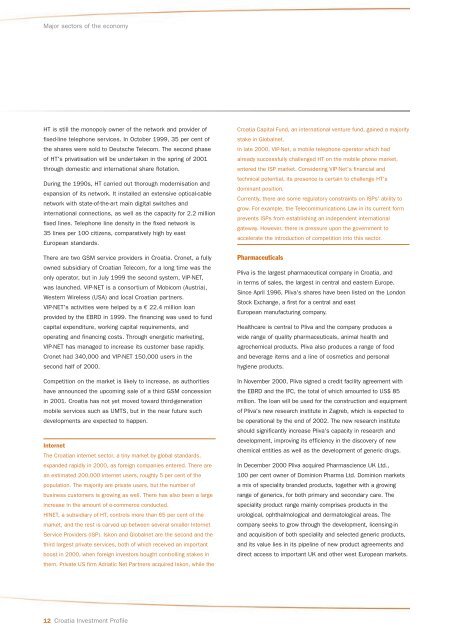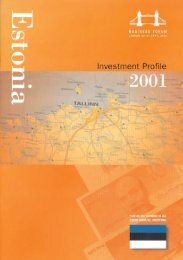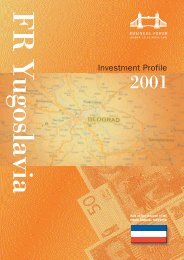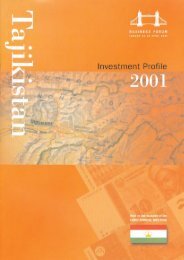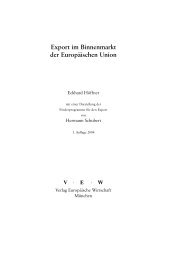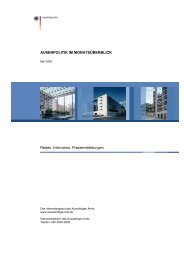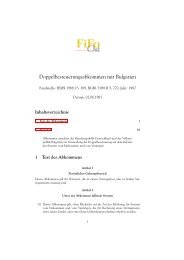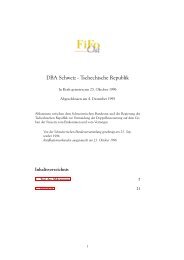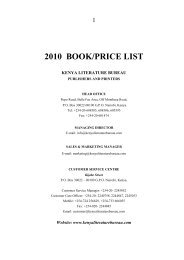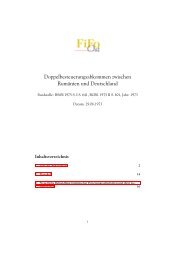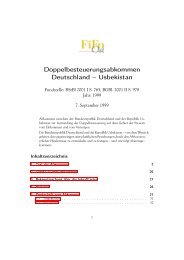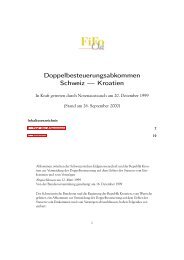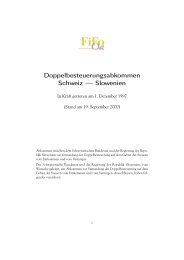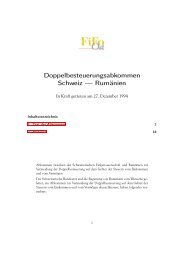Introduction - FiFo Ost
Introduction - FiFo Ost
Introduction - FiFo Ost
You also want an ePaper? Increase the reach of your titles
YUMPU automatically turns print PDFs into web optimized ePapers that Google loves.
<strong>Introduction</strong><br />
Major sectors of the economy<br />
HT is still the monopoly owner of the network and provider of<br />
fixed-line telephone services. In October 1999, 35 per cent of<br />
the shares were sold to Deutsche Telecom. The second phase<br />
of HT's privatisation will be undertaken in the spring of 2001<br />
through domestic and international share flotation.<br />
During the 1990s, HT carried out thorough modernisation and<br />
expansion of its network. It installed an extensive optical-cable<br />
network with state-of-the-art main digital switches and<br />
international connections, as well as the capacity for 2.2 million<br />
fixed lines. Telephone line density in the fixed network is<br />
35 lines per 100 citizens, comparatively high by east<br />
European standards.<br />
There are two GSM service providers in Croatia. Cronet, a fully<br />
owned subsidiary of Croatian Telecom, for a long time was the<br />
only operator, but in July 1999 the second system, VIP-NET,<br />
was launched. VIP-NET is a consortium of Mobicom (Austria),<br />
Western Wireless (USA) and local Croatian partners.<br />
VIP-NET's activities were helped by a € 22.4 million loan<br />
provided by the EBRD in 1999. The financing was used to fund<br />
capital expenditure, working capital requirements, and<br />
operating and financing costs. Through energetic marketing,<br />
VIP-NET has managed to increase its customer base rapidly.<br />
Cronet had 340,000 and VIP-NET 150,000 users in the<br />
second half of 2000.<br />
Competition on the market is likely to increase, as authorities<br />
have announced the upcoming sale of a third GSM concession<br />
in 2001. Croatia has not yet moved toward third-generation<br />
mobile services such as UMTS, but in the near future such<br />
developments are expected to happen.<br />
Internet<br />
The Croatian internet sector, a tiny market by global standards,<br />
expanded rapidly in 2000, as foreign companies entered. There are<br />
an estimated 200,000 internet users, roughly 5 per cent of the<br />
population. The majority are private users, but the number of<br />
business customers is growing as well. There has also been a large<br />
increase in the amount of e-commerce conducted.<br />
HINET, a subsidiary of HT, controls more than 65 per cent of the<br />
market, and the rest is carved up between several smaller Internet<br />
Service Providers (ISP). Iskon and Globalnet are the second and the<br />
third largest private services, both of which received an important<br />
boost in 2000, when foreign investors bought controlling stakes in<br />
them. Private US firm Adriatic Net Partners acquired Iskon, while the<br />
12 Croatia Investment Profile<br />
Croatia Capital Fund, an international venture fund, gained a majority<br />
stake in Globalnet.<br />
In late 2000, VIP-Net, a mobile telephone operator which had<br />
already successfully challenged HT on the mobile phone market,<br />
entered the ISP market. Considering VIP-Net's financial and<br />
technical potential, its presence is certain to challenge HT's<br />
dominant position.<br />
Currently, there are some regulatory constraints on ISPs' ability to<br />
grow. For example, the Telecommunications Law in its current form<br />
prevents ISPs from establishing an independent international<br />
gateway. However, there is pressure upon the government to<br />
accelerate the introduction of competition into this sector.<br />
Pharmaceuticals<br />
Pliva is the largest pharmaceutical company in Croatia, and<br />
in terms of sales, the largest in central and eastern Europe.<br />
Since April 1996, Pliva's shares have been listed on the London<br />
Stock Exchange, a first for a central and east<br />
European manufacturing company.<br />
Healthcare is central to Pliva and the company produces a<br />
wide range of quality pharmaceuticals, animal health and<br />
agrochemical products. Pliva also produces a range of food<br />
and beverage items and a line of cosmetics and personal<br />
hygiene products.<br />
In November 2000, Pliva signed a credit facility agreement with<br />
the EBRD and the IFC, the total of which amounted to US$ 85<br />
million. The loan will be used for the construction and equipment<br />
of Pliva's new research institute in Zagreb, which is expected to<br />
be operational by the end of 2002. The new research institute<br />
should significantly increase Pliva's capacity in research and<br />
development, improving its efficiency in the discovery of new<br />
chemical entities as well as the development of generic drugs.<br />
In December 2000 Pliva acquired Pharmascience UK Ltd.,<br />
100 per cent owner of Dominion Pharma Ltd. Dominion markets<br />
a mix of speciality branded products, together with a growing<br />
range of generics, for both primary and secondary care. The<br />
speciality product range mainly comprises products in the<br />
urological, ophthalmological and dermatological areas. The<br />
company seeks to grow through the development, licensing-in<br />
and acquisition of both speciality and selected generic products,<br />
and its value lies in its pipeline of new product agreements and<br />
direct access to important UK and other west European markets.


